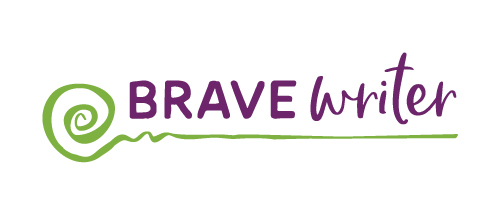Welcome to "Tea with Julie," a weekly missive by me, Julie Bogart. My wish is to give you food for thought over a cup of tea to enhance your life as an educator, parent, and awesome adult. Glad you're here. Pinkies up!
P.S. Was this email forwarded to you? Add yourself to the list and get your own!
Cincinnati, September 2, 2023
Hi Friend,
All writing is creative.
Every kind of writing, be it technical writing, essay writing, fiction, reports, poetry... Each act of writing must come from the creative well within. I call this “generative writing.” That means that the writer is generating words from inside.
Most schooled people elevate “technical” or “expository” or “academic” writing above merely creative writing. It’s the result of years of relentless conditioning in the school system that makes writing sound and feel like it happens “out there,” like it’s the act of “capturing someone else’s words” and organizing them into a rigid form to please a stern professor or newspaper editor.
What a travesty!
(Yes, this topic deserves that level of rhetoric.)
Academic writing (my very favorite kind of writing, by the way) does depend on a knowledge of how to construct an argument, how to choose your details and support, on sound grammar and punctuation. But it is so much more than the sum of those parts. Quality academic writing comes from a dialog between self and the chosen material at a sophisticated level of composition.
Teaching composition will never cause that fusion of research and personal insight to occur. Teaching composition as it is traditionally taught causes students to lose their ability to trust their writing voices and in the end, usually results in stilted pomposity or lifeless and dry regurgitation of research.
Writing Voice First
To achieve that effortless blend of insight and argument, though, we must start by developing voice first. Writer’s voice takes years to develop. You will see flashes of brilliance and quirky insights combined with bad spelling, poor mechanics, and lots of fragments and run-ons.
As we are developing voice, we are:
- learning how to punctuate,
- reading and copying and writing out dictation,
- editing and revising our own writing,
- sharing our writing with readers and discovering what impact our writing has on them (do they love my ideas but can’t recognize the words because of misspellings?)
This process takes about ten years (from 8-9 until about 18-19) and doesn’t stop even then. I do not recommend teaching academic format writing until a child is completely comfortable expressing themselves on paper. When they are free to be:
- outrageous,
- funny,
- insightful,
- careful,
- introspective,
- careless…
As the child grows as a writer, there will be natural points at which organization can be brought to bear on the raw writing.
But let’s not get the cart ahead of the horse. Writing is not about following rules, but learning how to express yourSELF in such a way that you communicate with the reader, that you register, you make contact, you connect!
It takes courage to go against the flow of the school culture. But that’s why I call you Brave Parents of Brave Writers.
Warmly,

P.S. Catch up on all the “Tea with Julie” emails here!
Julie Bogart
© 2023 Brave Writer LLC™
help@bravewriter.com
